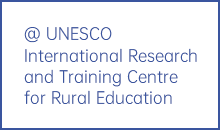The China-Southeast Asia Capacity Building Workshop (ASEAN-China TVET Policymakers Workshop) on Transforming Learning for Sustainable Rural Development successfully concluded its five-day programme from June 15-19, marking a significant step forward in regional cooperation for skills development for rural transformation.
The workshop was jointly organised by the UNESCO International Research and Training Centre for Rural Education (INRULED), the ASEAN-China Centre (ACC), the SEAMEO Regional Centre for Technical Education Development (SEAMEO TED), and the UNESCO Regional Office for East Asia (UNESCO Beijing). It also received guidance and support from Beijing Normal University, China Education Association for International Exchange (CEAIE), the Foreign Economic Cooperation Center of China's Ministry of Agriculture and Rural Affairs, with additional support from the China-ASEAN Specialized Committee for Education Cooperation and Development of the China Non-Government Education Association, China Agricultural University, and German International Cooperation Agency (GIZ).
On June 16, 2025, the workshop opened through a hybrid symposium, which brought together over 1,000 participants - including policymakers, education administrators, practitioners, and researchers from 11 countries (China, Brunei, Cambodia, Lao PDR, Malaysia, Myanmar, the Philippines, Thailand, Vietnam, Mongolia, and Uzbekistan) - to share policy innovations and practical solutions for advancing rural transformation through education and skills development.
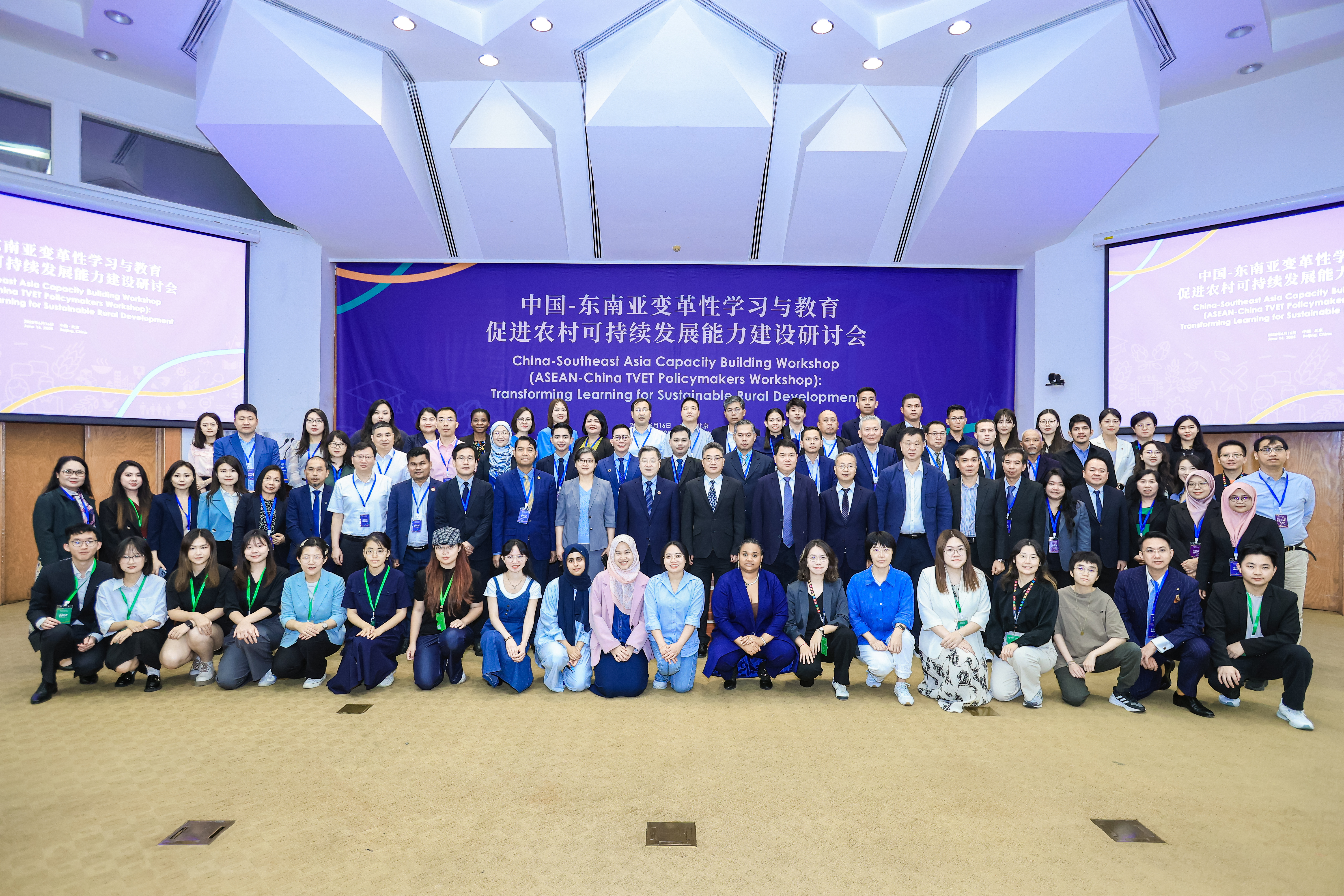
During the opening session, Prof. ZHOU Zuoyu, Vice Chairman of Beijing Normal University Council and Director of INRULED, highlighted the urgent challenge of global rural development. He identified adult education, TVET and lifelong learning as key drivers for transformative change, stressing the need for inclusive education systems that equip rural workers with skills for the digital and green economies to foster decent employment and entrepreneurship. Prof. Zhou outlined INRULED's longstanding commitment to education for sustainable rural development, including its advocacy for Learning Villages and Learning Villages in the Digital Era (LVDE), its Skills for All initiative, and its implementation of the Capacity Building Project for Rural Community Learning Centres in China - providing both conceptual leadership and practical solutions for skills development in rural areas.
H.E. Mr. SHI Zhongjun, Secretary-General of the ASEAN-China Center (ACC), underscored the enduring partnership between China and ASEAN, rooted in mutual trust and shared prosperity. He identified educational exchanges as a cornerstone of bilateral people-to-people cooperation, with particular emphasis on TVET's transformative role in cultivating talent for emerging sectors – including digital transformation, smart manufacturing, and sustainable development.
Dr. AN Yan, Deputy Secretary-General of the China Education Association for International Exchange (CEAIE), highlighted how the deep-rooted China-ASEAN partnership has been strengthened through robust educational cooperation. Noting TVET's growing strategic importance amid expanding industrial collaboration, she showcased CEAIE's flagship programmes fostering vocational education partnerships between China and ASEAN countries. Dr. AN reaffirmed CEAIE's commitment to synergistic collaboration with INRULED, ACC, and SEAMEO TED, combining institutional strengths to build a vibrant China-ASEAN TVET community. These collective efforts, she emphasised, will significantly contribute to realizing the United Nations 2030 Sustainable Development Goals and advancing a shared future of humankind.
Prof. Shahbaz Khan, Director of the UNESCO Regional Office for East Asia, highlighted the importance of China-ASEAN cooperation in translating education policies into concrete actions for sustainable rural development. He stressed that inclusive and equitable education forms the bedrock of sustainable development, with rural development being an integral part of that foundation. He noted that education not only facilitates the transmission of knowledge but also serves as a catalyst for transforming rural societies. Prof. Khan called on countries across the region to join hands in building collaborative networks and to continue advancing efforts in empowering rural and green transformation through education.
During the keynote session, Mr. LI Yingli, Deputy Director-General of the Department of Vocational and Adult Education at China's Ministry of Education, provided a comprehensive overview of the progress made in China's vocational education system, particularly in industry-education integration and digital transformation. He reiterated China's commitment to strengthening ASEAN collaboration in developing globally competitive skilled professionals.
Dr. YUAN Ying, Lecturer at the School of Journalism and Communication at Beijing Normal University, presented the department's pioneering digital literacy initiative, currently being implemented across three diverse regions of China: Sichuan, Hebei, and Xinjiang. The project has successfully engaged government, academia, industry and local communities through its cross-regional platform, demonstrating a successful model for digital empowerment in rural areas.
Dr. ZHU Min, Associate Professor of East China Normal University and Principal Researcher of the ESD Programme at Shanghai Municipal Institute for Lifelong Education, presented Shanghai's innovative approaches to green education, highlighting three key initiatives: ecological curriculum development, industry transition programmes, and climate education. Through strategic university-community partnerships, Shanghai has cultivated an intergenerational, multi-stakeholder learning ecosystem for sustainable development. Dr. Zhu stressed the need for context-sensitive green education models and proposed strengthened collaboration with Southeast Asian countries to share best practices and accelerate regional progress.
On the country report session, policymakers and education administrators from nine countries - including China, Brunei, Cambodia, Lao PDR, Malaysia, Myanmar, the Philippines, Thailand, and Vietnam - shared national policies and best practices in advancing sustainable rural development. The discussion touched on key themes including adult education reforms, industry-education integration in TVET, inclusive lifelong learning frameworks, women's economic empowerment, and digital skills development. The dialogue underscored education's transformative role in rural communities, showcasing how countries are adapting strategies to local contexts while strengthening systemic resilience, with shared experiences highlighting both regional challenges and emerging solutions.
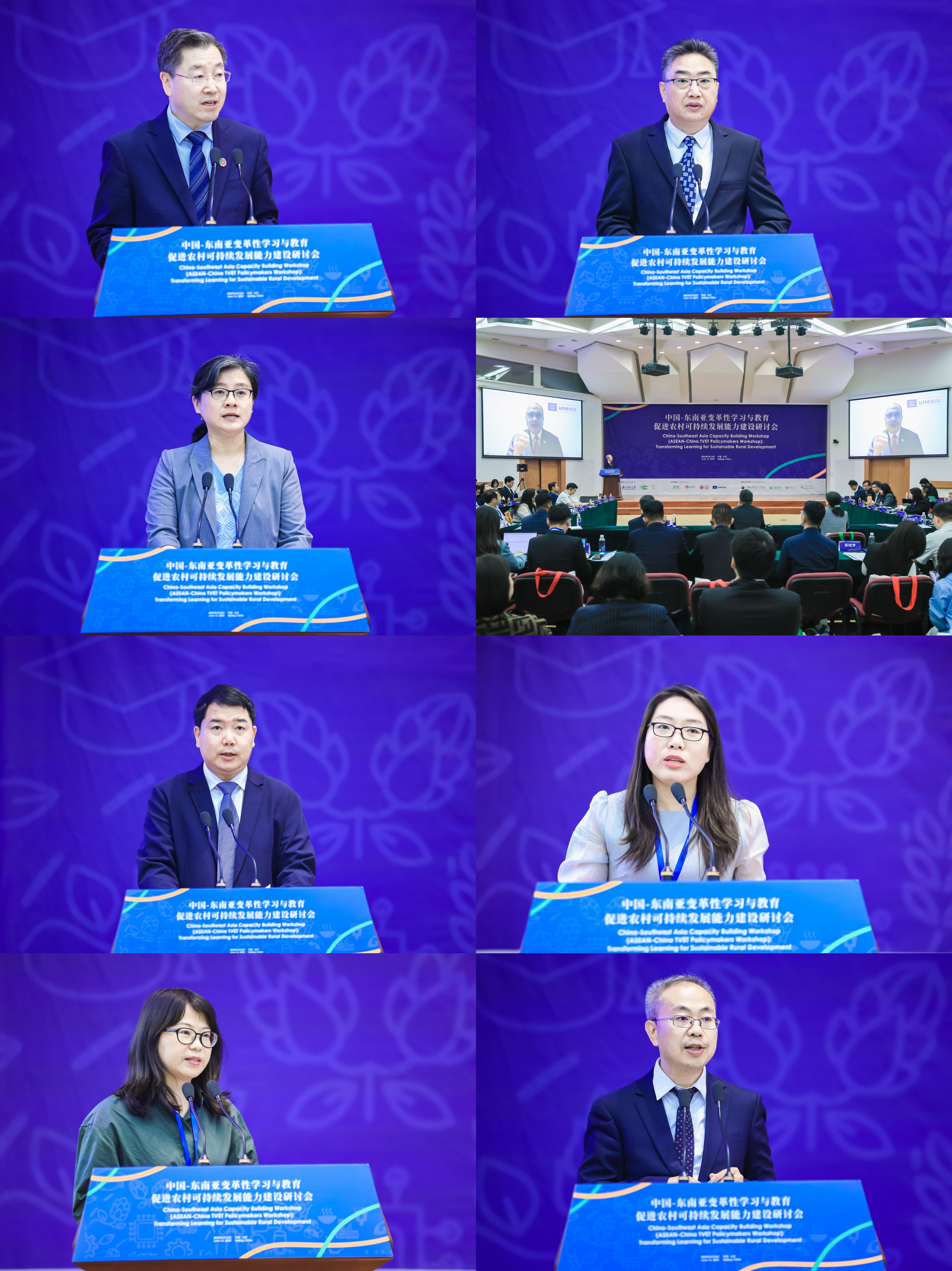
On the morning of June 17, INRULED and German International Cooperation Agency (GIZ), hosted a workshop on "Empowering Women Entrepreneurs through TVET," exploring key themes such as women's empowerment, leadership, and TVET reform. During the interactive "Connection Café" session, participants reached consensus on key measures to advance gender equality in TVET: strengthening policy support systems, enhancing capacity building, and transforming traditional gender norms. The workshop was facilitated by the Regional Gender, Diversity and Sustainability Officer of GIZ, Ms. HUO Junyu.
The workshop also featured insights from representatives of the National Institute for Regional Development of Mongolia and the Institute of Development of Vocational Education of Uzbekistan, who shared their countries' experiences in vocational education system development.
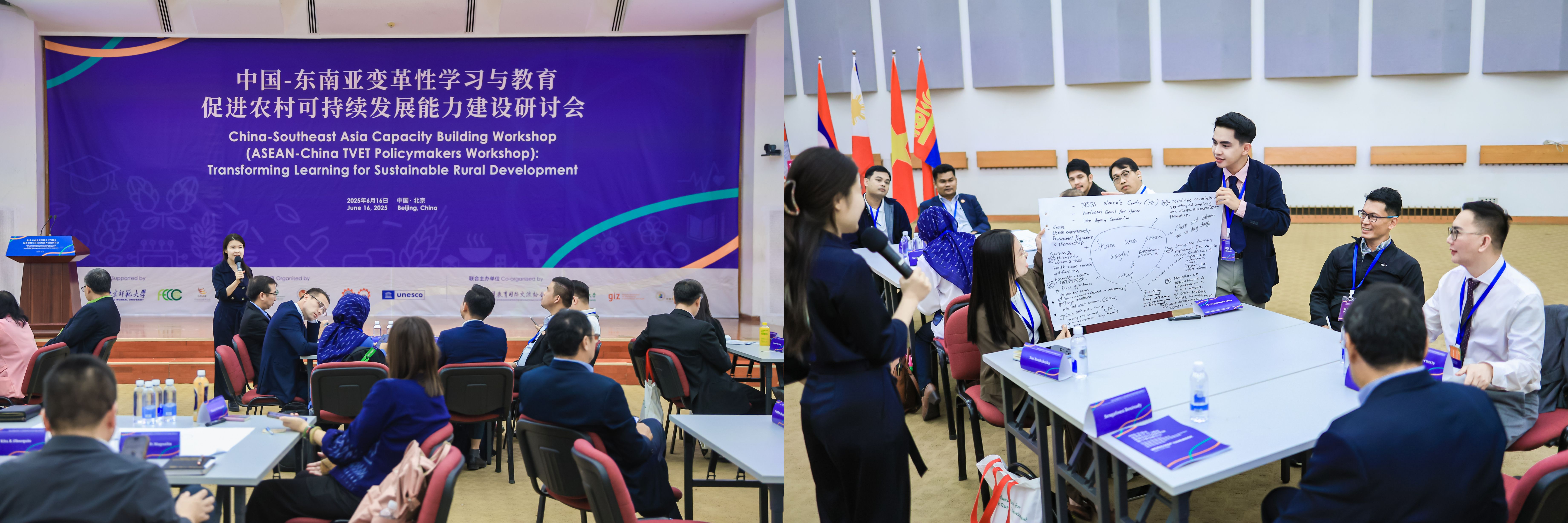
During their visit to Beijing, the 34 workshop participants - comprising TVET and adult education policymakers and administrators from 10 countries - engaged in a three-day field study and exchange programme. This immersive experience provided them with in-depth insights into China's innovative approaches to TVET development, lifelong learning initiatives, and the cultivation of agricultural and digital skills.
On June 17, the international delegation visited the Weigongcun Campus of the Open University of China, where they explored innovative teaching spaces including a multimedia recording studio, holographic classroom and VR training lab. The campus demonstration highlighted the university's pioneering blended education model, which leverages advanced technologies like 5G and VR to create a comprehensive smart education platform. This integrated system successfully combines degree education programmes, non-degree training, and lifelong learning opportunities into a cohesive educational ecosystem.
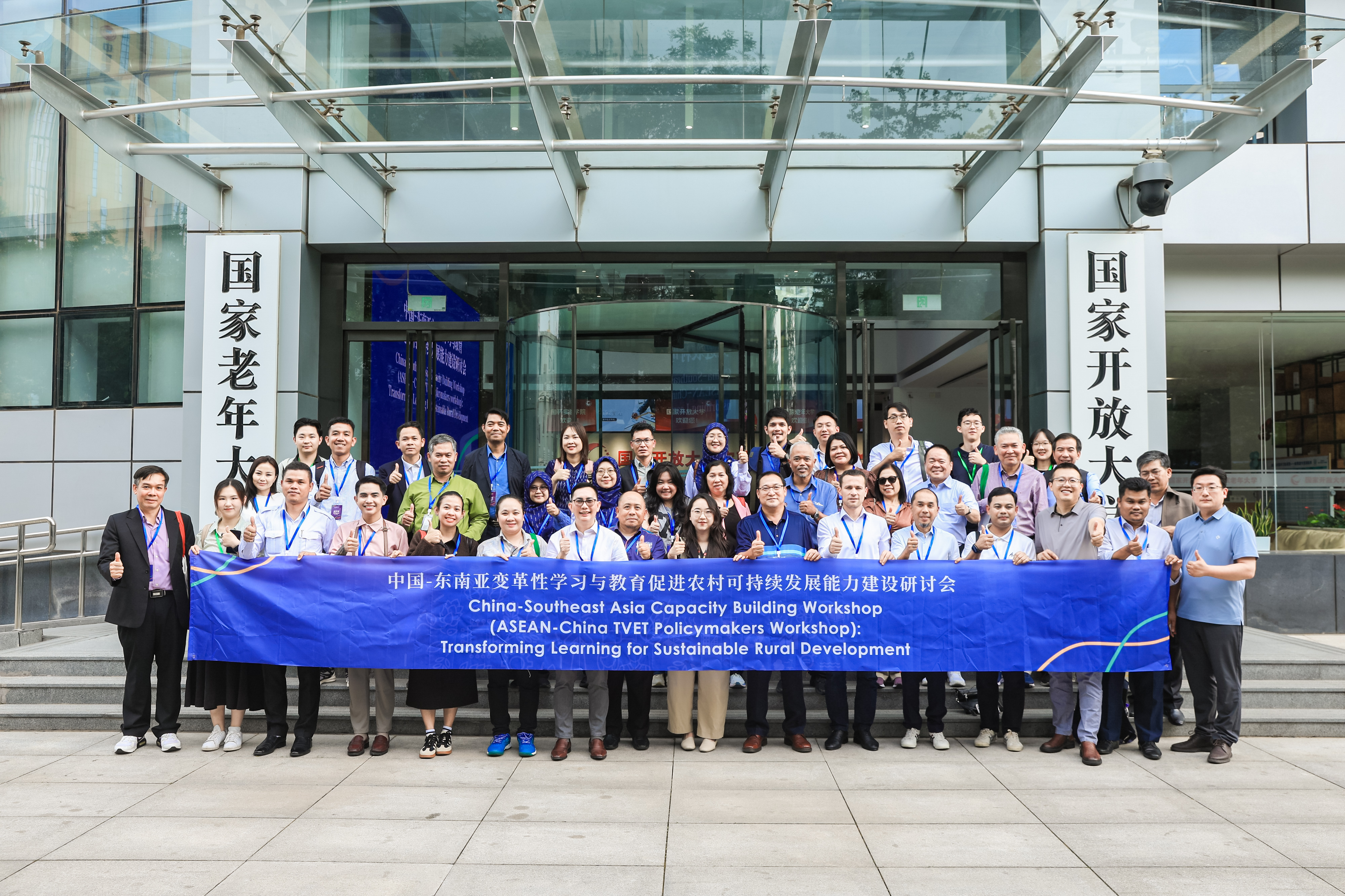
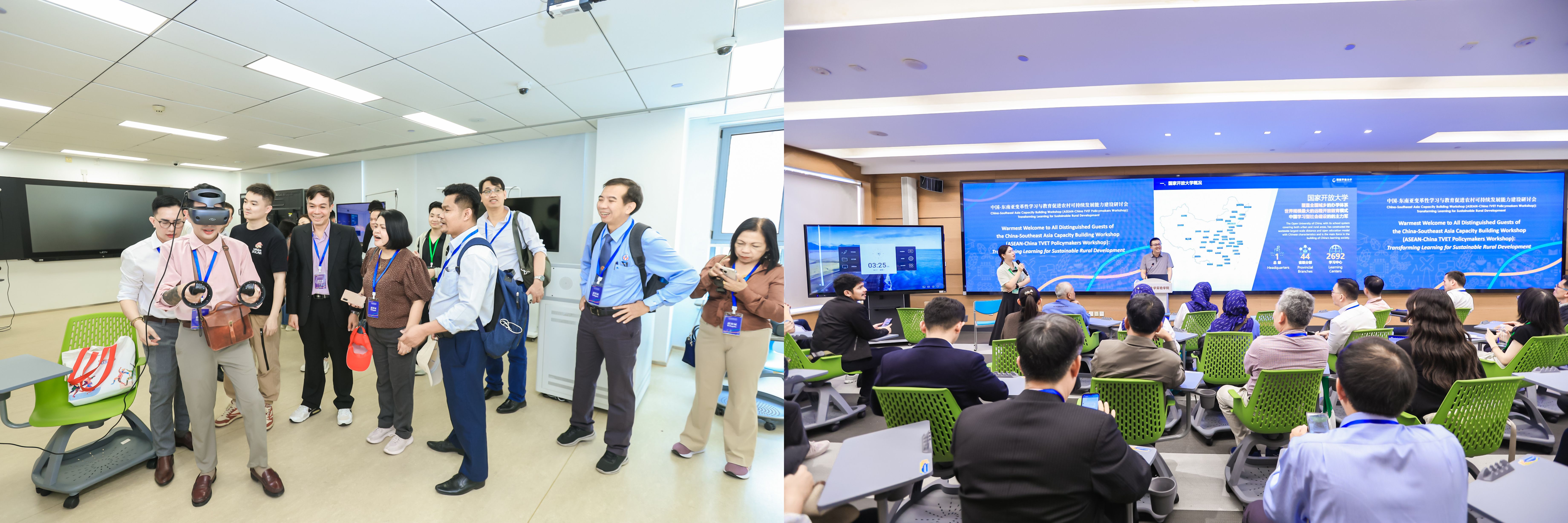
On June 18, the participants visited the Cuihu Science & Technology Backyard (STB) located in Beijing's Haidian District – one of 248 such facilities established nationwide through partnerships between China Agricultural University (CAU) and local stakeholders. Developed by CAU in 2009 to bridge the critical gap between agricultural research and smallholder farming practice, the STB model relocates professors and students from university labs to villages, creating living laboratories where academic knowledge transforms into practical solutions. By embedding researchers directly in farming communities to co-develop sustainable technologies, the programme has evolved into an effective knowledge-transfer platform that demonstrates higher education's vital role in translating theory into field-level impact while training the next generation of agricultural professionals.
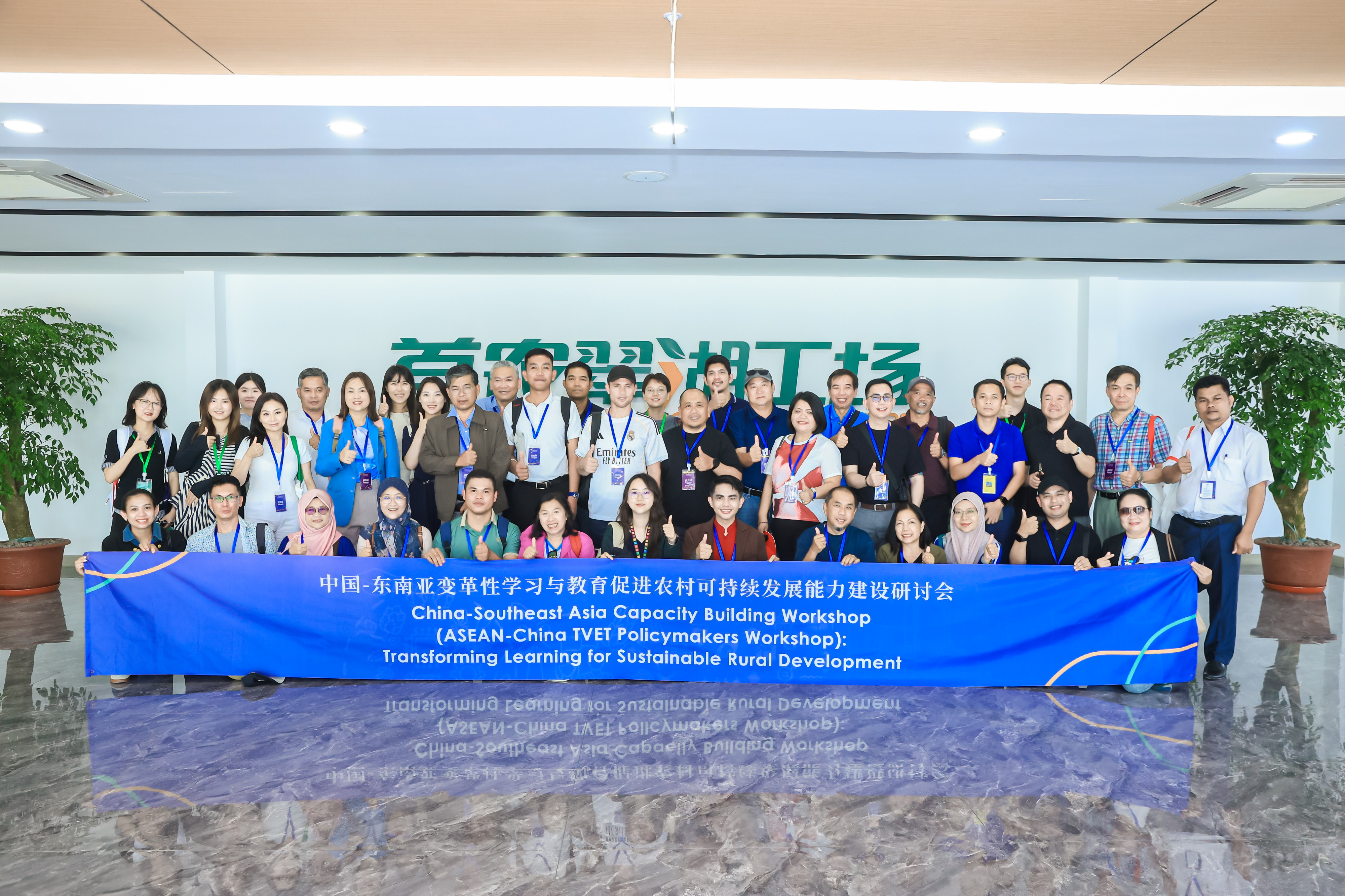
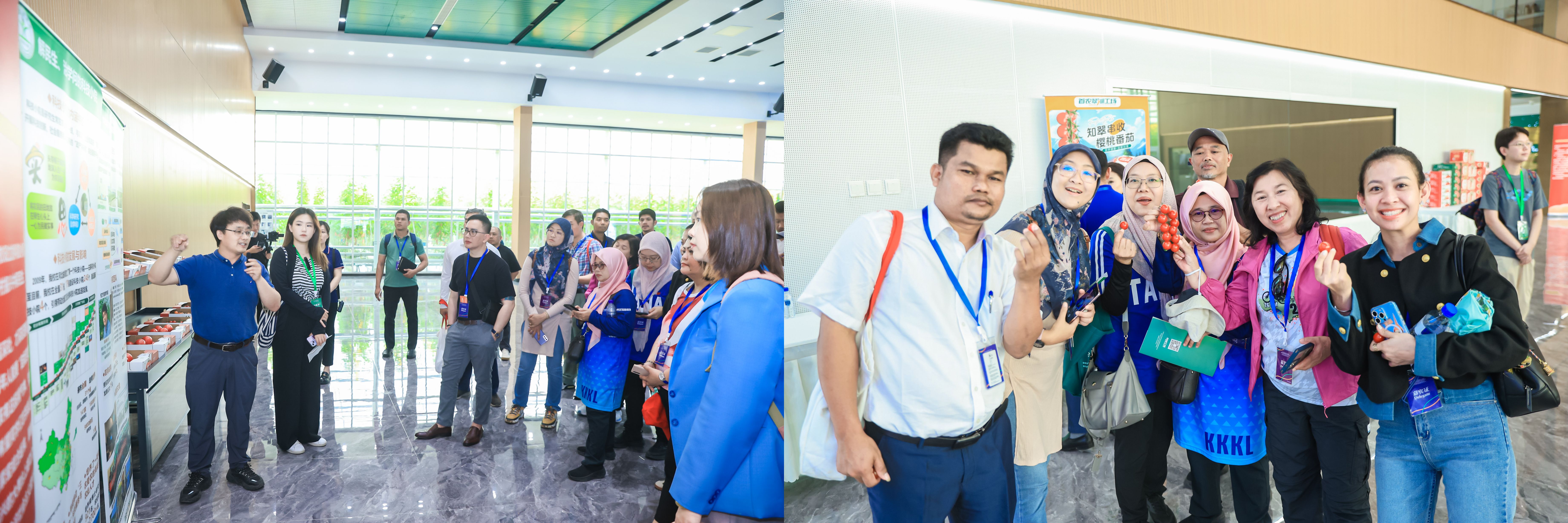
On June 19, the international delegation visited several vocational training bases at Beijing Changping Vocational School (BCVS). At the training base of the Smart Agriculture Department, the delegation toured practical teaching facilities such as the orchid grafting and cultivation greenhouse and examined student innovations like an intelligent pesticide spraying robot, showcasing the school's hands-on approach to modern agricultural education. The group then toured the Sino-German Automotive Education and Cultural Exchange Center, gaining insights into its innovative "school-enterprise integration" model that connects classroom learning with real-world production through on-campus auto repair shops and industry partnerships with companies like BMW and Volkswagen, all while incorporating the latest technical standards into its curriculum.
The visit also included the e-commerce training base, which presented a successful case of school-enterprise collaboration through its weekly agricultural product live-stream sessions that have served 58 farmers' cooperatives and increased sales by 30%, demonstrating an effective model for rural e-commerce talent development. The delegation further explored BCVS's specialized training facilities, including the Aviation Service Department's simulation labs, the Digital Culinary Art Department's innovation kitchen, an indoor winter sports training complex, and the facilities of the Baking Arts Institute. The visit showcased vocational education's crucial role in driving economic growth, industrial upgrading, and skilled workforce development, effectively bridging education with labour market needs and technological progress.
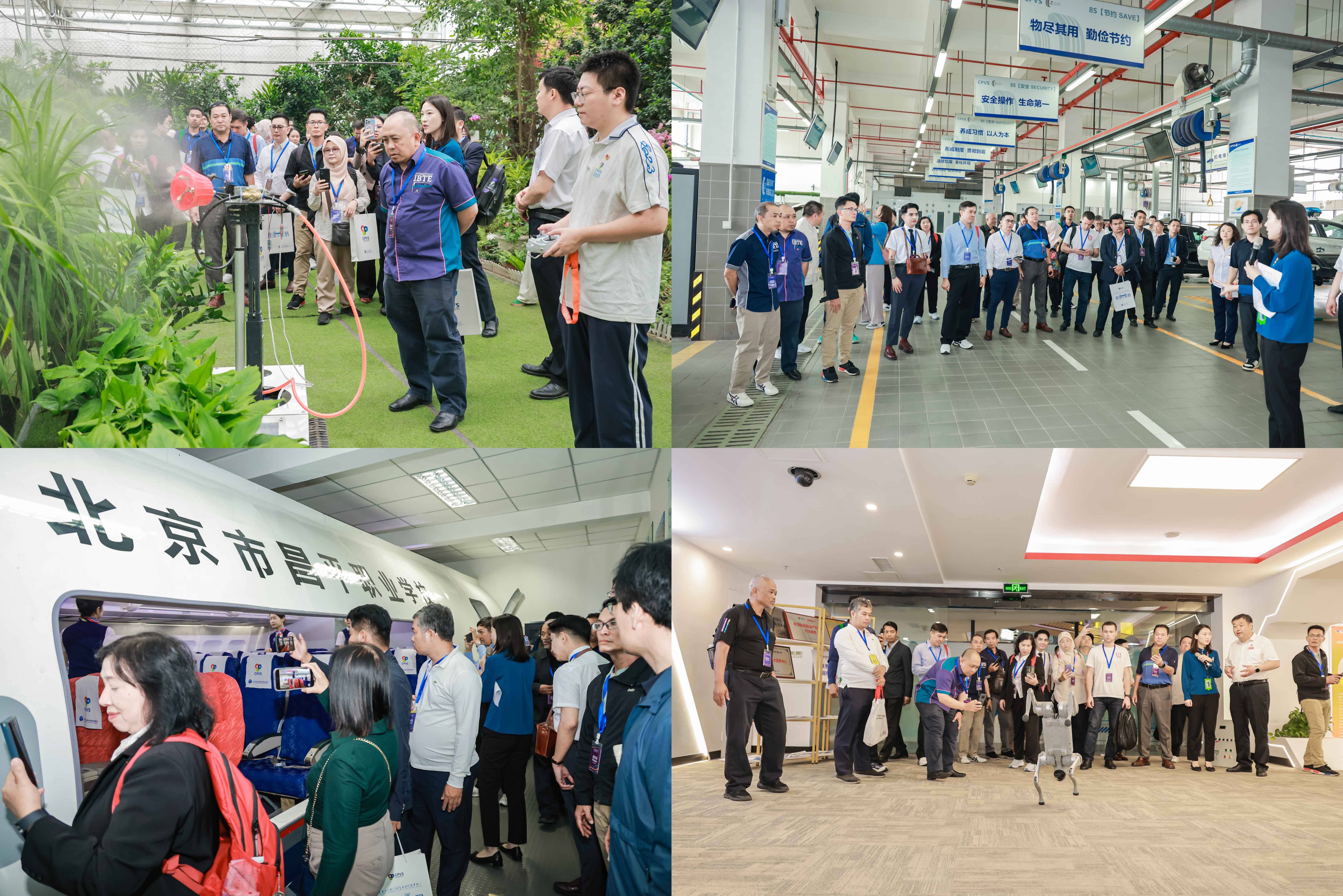
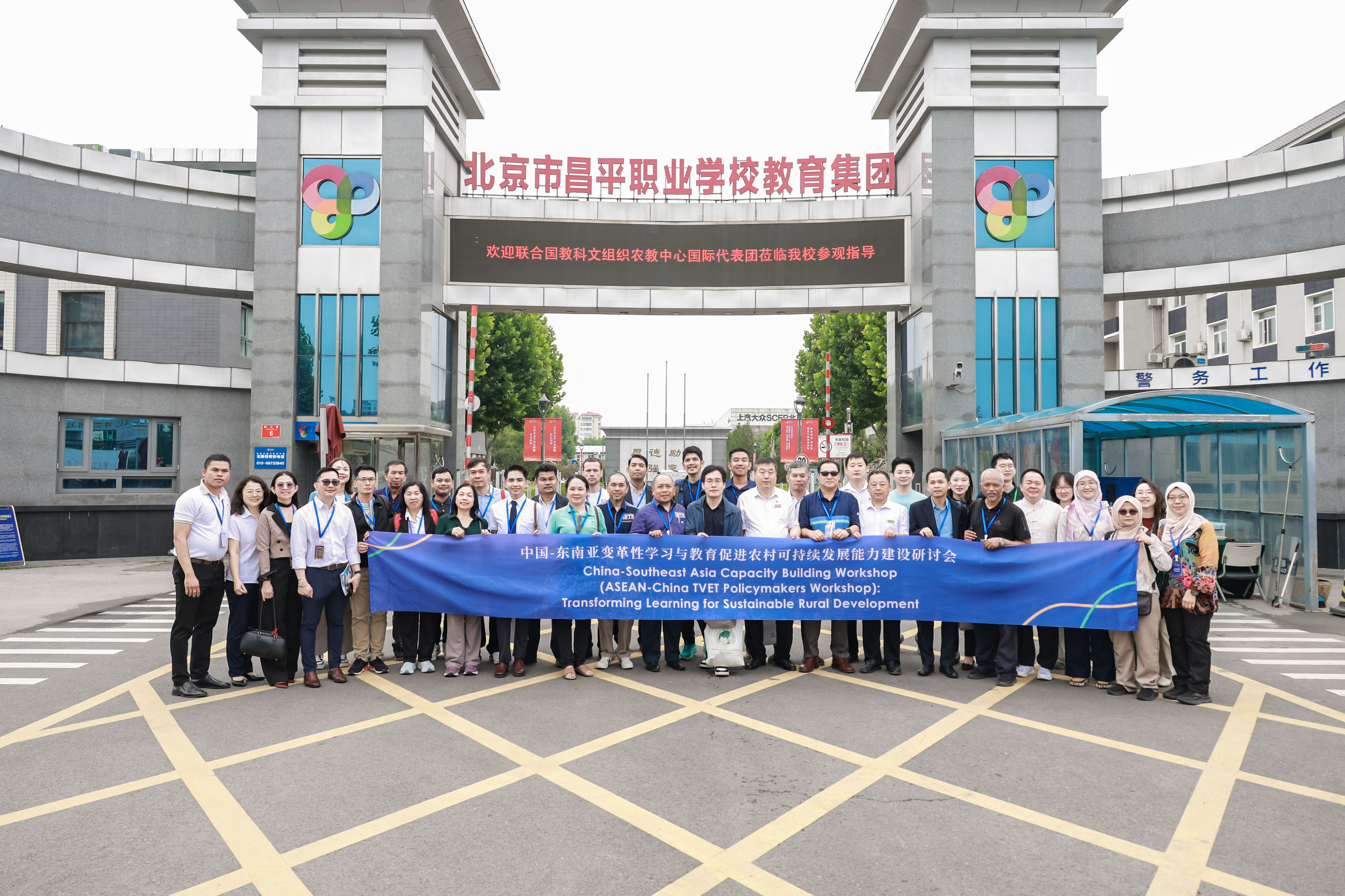
The China-Southeast Asia Capacity Building Workshop (ASEAN-China TVET Policymakers Workshop) on Transforming Learning for Sustainable Rural Development established a crucial regional platform for sustainable rural development. Through policy dialogues and field visits, participants examined digital skills training, sustainable agriculture, and innovative education-industry linkages. The workshop identified inclusive education systems, robust vocational partnerships, and comprehensive lifelong learning frameworks as critical drivers for rural transformation. Building on these outcomes, INRULED will work with partners to transform policy insights into on-the-ground initiatives that empower rural populations.










